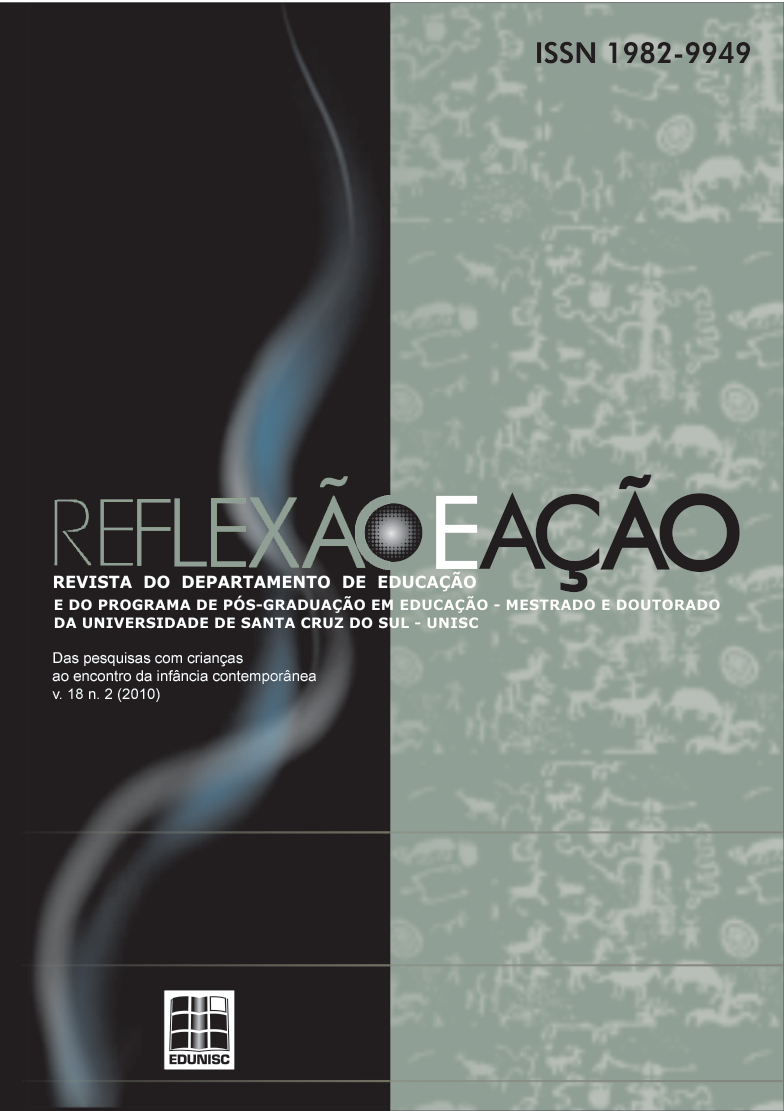PATHS OF RESEARCH WITH SMALL CHILDREN: Breaking Boundaries
DOI:
https://doi.org/10.17058/rea.v18i2.1526Abstract
The following text has as its origin a Master’s degree’s investigation, where the central motivation was to attempt to comprehend educative practices developed in a Public Early Childhood Education Institution from Florianópolis city. A group of 20 children aged between 3 and 4 years-old were the research’s subjects. The analysis highlights from those practices the relationships established between adults and children inside the institution, especially the situations which adults consider as “transgression” committed by children. I underline here the methodological course from this Study in order to register the possibilities of research with children, emphasizing their condition as full social subjects and, therefore, interlocutors capable of talking about their selves. The relationships among children (pairs) revealed a certain complicity degree in the formulation of strategies through which they “cheated” some of the rules imposed by adults. These observations constitute a alert and a orientation for those who intend to build a Pedagogy that changes from regulation to subjects’ emancipation. Key-words: Early Childhood Education; Research Methodologies; TransgressionDownloads
Downloads
Published
How to Cite
Issue
Section
License
The submission of originals to this journal implies on the transference, by the author(s), of the printed and digital publishing rights. The author´s rights to the published articles are the author´s, the journal has the rights over the first publication. The author(s) can only use the same results in other publications, indicating clearly that this journal was the original publisher. Since we are an open access journal, the free use of articles is permitted for educational and scientific applications, as long as they inform the source according with the CC-BY license from Creative Commons.


